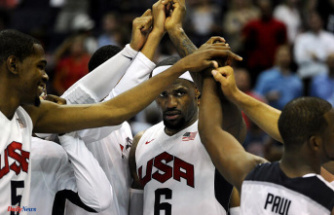Former colleagues described Rumsfeld as equally intelligent and combative, patriotic, and politically cunning. He served under four presidents over a long career and spent nearly 25 years in corporate America. Rumsfeld retired in 2008 and established the Rumsfeld Foundation, which promotes public service and works with charities that support military families and wounded vets.
Two-time defense secretary and presidential candidate, he died Tuesday. He was 88.
He was known as "Rummy" and was ambitious, funny, engaging, and capable of great personal warmth. Rumsfeld's confrontational style annoyed many. Rumsfeld was an accomplished college wrestler. He loved verbal sparring and made it into an art form. His favorite weapon was his biting humor.
He still managed to build a loyal network of people who appreciated his intelligence, work ethic and impatience, even though they didn't share his sense for urgency.
He was a powerful political force from his early years in Washington. Bryce Harlow was an associate of President Richard Nixon and helped convince Rumsfeld to resign as Congressman and become director of the Office of Economic Opportunity. He called him "rough, ready, willing to tangle" but also "the type of guy who would walk on blue flames to get a job done."
Rumsfeld is only person who has served twice as Pentagon chief. He was the youngest person to serve as Pentagon chief in both 1975-77 and 2001-06. He was then the oldest, 2001-06
A brief run for the 1988 Republican presidential nominee was made. It was a stunning flop, which he once described to be humbling for someone who had been a successful leader at the highest levels, including stints as White House chief, U.S. ambassador, and member of Congress.
Rumsfeld's accomplishments aside, his most memorable legacy will be the one that he experienced in Iraq during his final years of service.
___
Rumsfeld arrived at the Pentagon in January 2001 to begin his second term as defense secretary. The military he inherited was going through a slow transition from the Cold War era into a period marked by ethnic conflicts in Balkans, humanitarian crises and terrorism. Other concerns include China's growing military might and North Korea's nuclear ambitions.












